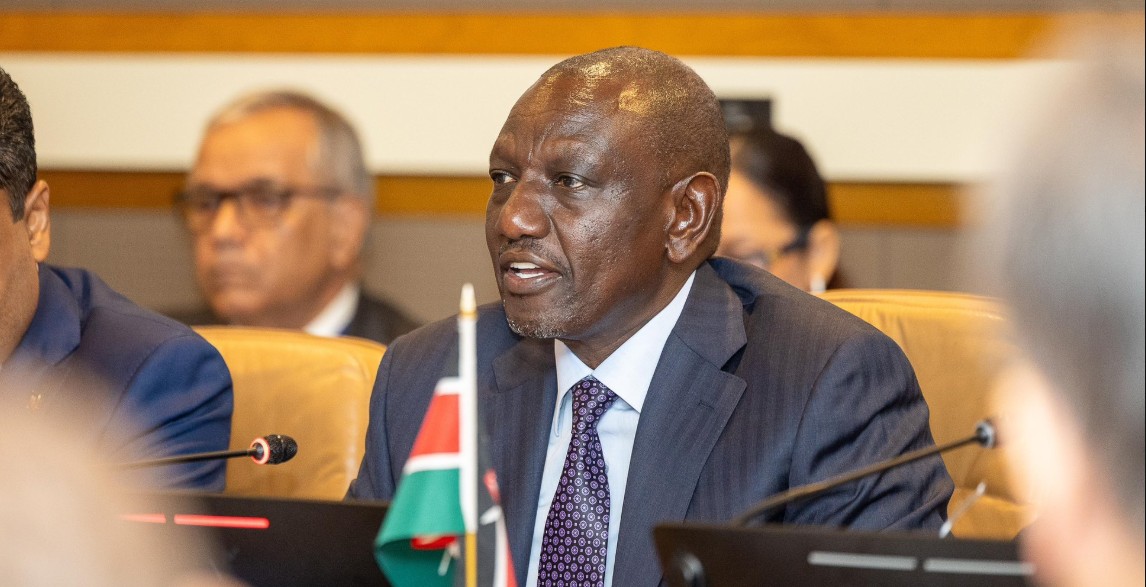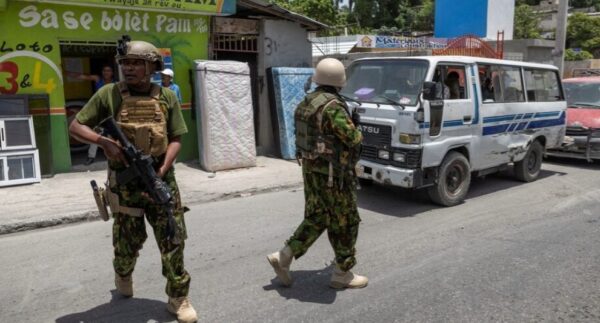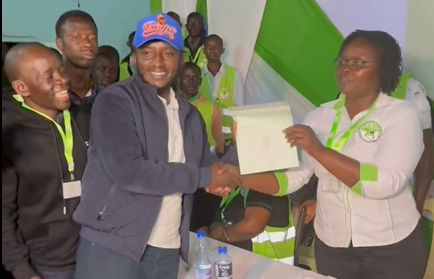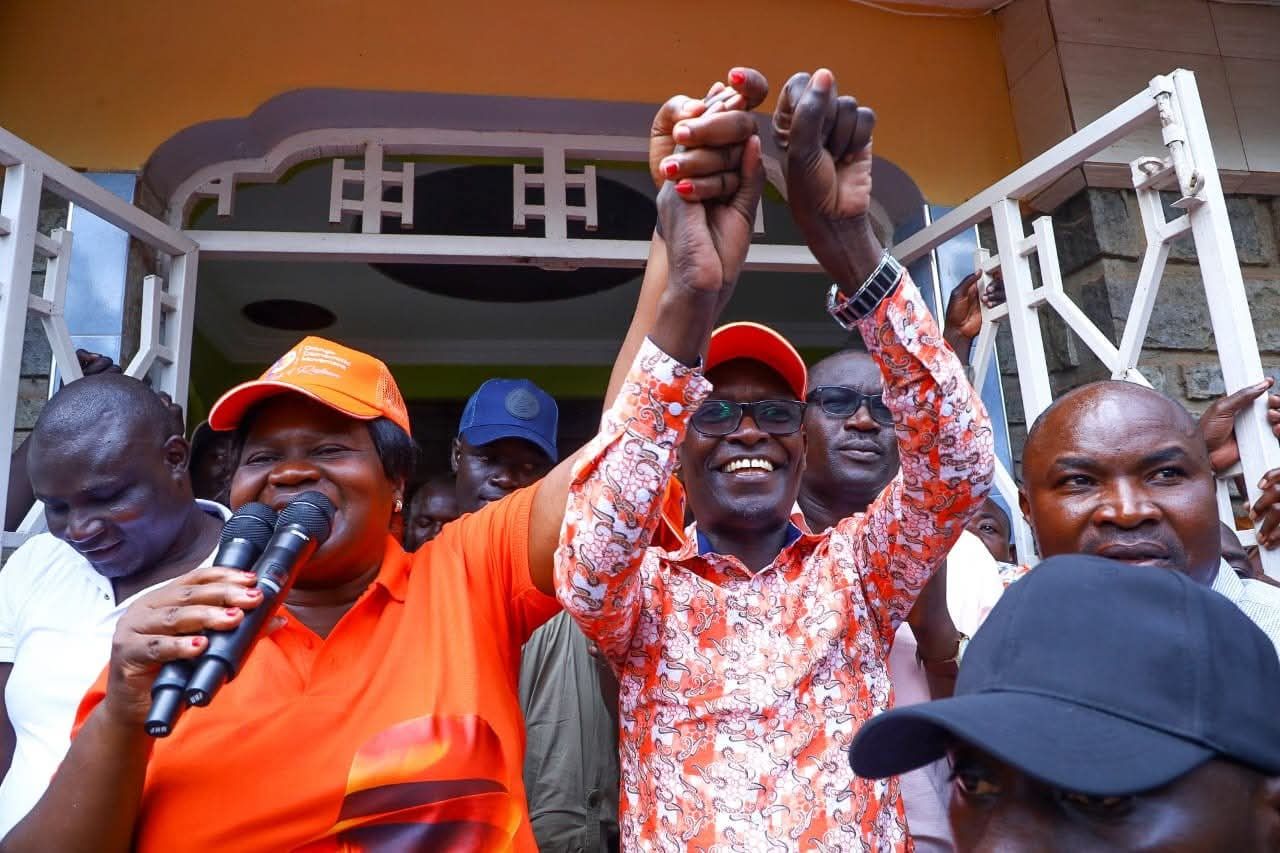President Ruto vows Kenya won’t exit Haiti without clarity on transition

The Kenyan-led MSS mission, authorised under UN Security Council Resolution 2699, officially began with the arrival of 200 Kenyan police officers in Port-au-Prince on June 25, 2024.
President William Ruto has made it clear that Kenya will not pull its forces out of Haiti until there is a clear and structured plan for a new international security mission.
While acknowledging the progress made under the Multinational Security Support Mission (MSS), the president emphasised that Kenya’s responsibility in the Caribbean nation is not yet over.
More To Read
- Kenya Kwanza adds Sh3 trillion to national debt in three years, CBK reveals
- Cases of police misconduct rises despite overall drop in crime -Report
- Northern region MPs accuse President Ruto of ignoring region in State of the Nation Address
- Government to build 50 mega dams to transform Kenya’s agriculture - Ruto
- Ruto says public demand for affordable housing has replaced doubts with excitement
- Ruto terms Hustler Fund largest financial inclusion programme since independence
In an interview with France 24 on Thursday, September 25, Ruto described Kenya’s involvement in Haiti as a success but insisted that the country would only withdraw once there is clarity on what comes next.
“We were asked to step in, and we believe the mission is completed and was a success. But the one thing Kenya will not do is to walk away from Haiti without clarity on a transition,” he said.
“We will be there to make sure the next mission, once it is formed, is well structured. It’s not clear when that will be formed, it’s not clear how it will be resourced, there are many things still hanging,” Ruto added.
The president confirmed that bringing Kenyan troops home remains the plan, but expressed concern over the security vacuum that could be left behind if the mission is ended abruptly.
According to the head of state, the Kenyan-led mission has already brought stability to key institutions, restoring access to essential services and helping reclaim areas that had been controlled by armed gangs.
 Haitian police patrol the outskirts of Port-au-Prince on August 4, 2025, as the government declares a three-month state of emergency to curb rising gang violence. (Photo: Reuters)
Haitian police patrol the outskirts of Port-au-Prince on August 4, 2025, as the government declares a three-month state of emergency to curb rising gang violence. (Photo: Reuters)
Ruto shared updates from the chairman of Haiti’s Presidential Council, underlining that key state facilities that had previously been overrun are now operational.
“When we went to Haiti, both the air and sea ports had been overrun by gangs. Today, they are operating. Schools and hospitals had been overrun; today, they are operating. The palace was under siege from gangs; today, that is where the Presidential Council and Prime Minister sit,” he said.
“Police headquarters, together with the training academy, were overrun, and gangs were operating from police headquarters. Today it’s working, and they have just graduated 700 officers,” Ruto added.
While acknowledging these milestones, the President stressed that the gains made need to be protected and extended.
He recommended three critical steps for the next phase of the mission: expanding the mandate to pursue gangs more aggressively, increasing logistical support, and deploying more troops to reinforce the current efforts.
“With these, we have set the foundation of the success of the intervention in Haiti and recommended how it should look going into the future,” Ruto said.
Speaking again on Tuesday during a side event on Haiti at the United Nations General Assembly (UNGA) in New York, Ruto praised the impact of the MSS, saying the mission has brought visible changes in a country that had been crippled by lawlessness.
 Kenyan police officers on patrol in Haiti on June 28, 2024. (Photo: File/Reuters/Ricardo Arduengo)
Kenyan police officers on patrol in Haiti on June 28, 2024. (Photo: File/Reuters/Ricardo Arduengo)
He called on the global community to urgently support the deployment of a successor force, even as the UN Security Council prepares for a key decision in the coming days.
“Thanks to the MSS, the situation today is markedly different,” Ruto said, pointing to signs of order and the return of daily life across key sectors.
The Kenyan-led MSS mission, authorised under UN Security Council Resolution 2699, officially began with the arrival of 200 Kenyan police officers in Port-au-Prince on June 25, 2024.
Despite the challenges, the mission has continued to grow and now includes 989 officers from six countries. Kenya has contributed 735 officers, while the rest are from Jamaica, Guatemala, El Salvador, the Bahamas, and Canada.
Still, the current troop strength is far below the intended 2,500, with the force operating at less than 40 per cent capacity.
“Despite inadequate and unpredictable resources, the MSS has registered undeniable success,” Ruto said.
Among the mission’s achievements are the recovery of the Haitian police headquarters, the reopening of schools, the resumption of graduation ceremonies, and the return of access to major roads that were previously controlled by armed groups.
Top Stories Today
















































